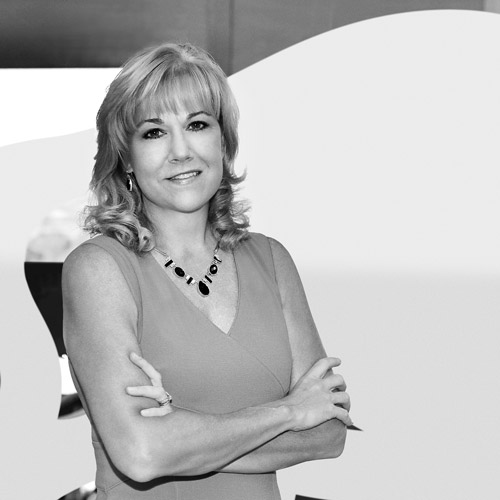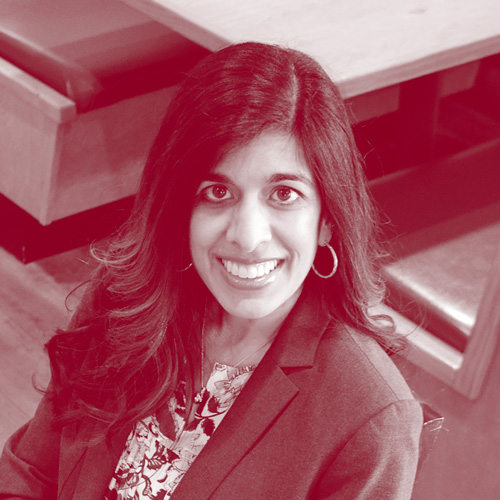In 2001, the Dallas Mavericks were playing their best basketball in years. After missing the playoffs for a decade, the team traded for Juwan Howard and watched Michael Finley play in the NBA All-Star Game. Dallas finished the regular season with fifty-three wins and drew Utah as a first-round playoff opponent. After four games, the five-game series was tied, and the Mavericks were heading back to Utah.
After Dallas’s game four victory, George Prokos and his staff went into hyperdrive. “We had about thirty hours to create energy around a game five in Utah,” the team’s senior vice president of ticket sales and services recalls. Prokos, along with the team’s new owner, Mark Cuban, wanted to make a splash at game five. They assembled a ragtag team of employees and season ticket holders dedicated to one common vision: to fill Utah’s Delta Center with as many Dallas fans as possible.
The problem was that Utah enforced a four-ticket limit. However, after hours of hold music and redials, the Dallas group had landed about 400 tickets, and Cuban announced a deal: he would give the tickets away for free to any Mavs fan willing and able to make the 1,200-mile pilgrimage. Next, the team set up a makeshift headquarters in a Utah hotel, where fans could receive free tickets if they agreed to have their face painted and wear a bright orange Mavericks shirt.
Although Prokos is sure his staff painted the faces of a few disguised Jazz fans, the unusual strategy seemed to have worked. Dallas pulled away in the fourth quarter, and with less than ten seconds left, Calvin Booth made a put-back shot to give the Mavericks their first playoff series win of the Mark Cuban era. The hundreds of painted fans rushed the floor and later went to a local bar to celebrate with players and executives.
The anecdote illustrates what Prokos has experienced during his nearly two decades with Mark Cuban and the Dallas Mavericks. He moved to Texas in 1981, worked in the automotive aftermarket, and met Cuban through mutual friends. At a New Year’s Eve party in 1999, Cuban announced he had signed a letter of intent to buy the Mavericks. A few weeks later, Cuban e-mailed Prokos. He wanted a trusted friend to shake up the underperforming sales department. Prokos was Cuban’s pick to be his first director of new revenue.
When Cuban announced his intent to purchase the Mavericks, plans were already underway to move the team to the future American Airlines Center. The stadium would house the city’s NBA and NHL teams, and Prokos would need to get a seat at the table if he was to successfully transfer 10,000 existing season ticket holders to the new stadium without incident. To do so, he started what has become a hallmark strategy for the Dallas Mavericks. “We built stronger relationships with our season ticket holders, and we still do that today,” Prokos explains. “They are so critical to what we are doing. Previous owner Ross Perot ran his organization as a real estate holding. For Mark Cuban, it’s all about entertainment.”
“We went from selling basketball to selling memories and experience. We transformed the fan experience in Dallas.”
The important shift in tone has paid off. Prokos helped Dallas move a record number of tickets. Games started selling out, and in less than a year, his team enjoyed repeat sellouts. On December 15, 2001, Dallas started a string of consecutive home sellouts that remains unbroken.
How did they do it? Prokos goes back to Cuban’s core philosophical change. “We wanted to remove barriers to entry,” he says. “We wanted to keep processing fees low and ticket prices reasonable. We wanted to make American Airlines Center the place to be. We didn’t want the most money per ticket; we wanted to fill the arena.” Cuban gave Prokos the latitude he needed. The salesman was free to hire as many people as he wanted, and Cuban suggested people with experience selling commodity items and not sports industry insiders—as long as they brought in more money than they cost.
Prokos hired people he knew were accustomed to being on the phone, overcoming objections, and working hard to close a sale. He commandeered a conference room, filled it with six phones and a stack of phone books, and asked his new employees to make calls. At the same time, his counterparts at the Mavs were changing perceptions in the city and beyond. “We went from selling basketball to selling memories and experience,” he says. “We transformed the fan experience in Dallas.”
The Mavericks’ sellout streak
The Dallas Mavericks are in the midst of one of the most impressive feats in the world of sports. The NBA team has sold out every home game since December 15, 2001.
The team’s stadium— American Airlines Center—holds roughly 20,000 fans. During that span, the Mavs have filled the arena for 596 regular season and 67 playoff games.
Cuban signed renowned bad boy Dennis Rodman to generate excitement. Prokos started giving free tickets to fans willing to paint themselves and sit in a special section. The company expanded its sales force, devised creative ticket packages, and embraced alternative pricing. Prokos and his team created more special events for season ticket holders and included customers who purchased miniplans. As Dallas built upon its Utah playoff win, Dirk Nowitizki, Steve Nash, and Michael Finley emerged as franchise stars.
After several years of sellout crowds, Prokos turned his attention to sustaining his early success. “The key is keeping season ticket sales high,” he says. About 75 percent of capacity goes to season ticket holders, but even a 90 percent renewal rate means Prokos’s team has to sell plenty of new season tickets each year to stay at capacity. There’s no particular sales season; they sell year-round, prorated plans, and continue selling until inventory is gone. Scattered leftover tickets find homes with the help of software designed to harness data collected at various points of sale.
While sellouts are always Prokos’s number one goal, he says his real mission is to ensure Dallas fans have a complete experience whenever they attend a Mavs game. “We hope our fans leave feeling they were part of two and a half hours of fun and excitement for a great value,” he says. “And we want them to come back.” In 2014, he and his colleagues joined all American Airlines Center employees in Disney’s ELEVATE program, where they received training on intentional customer service. Additionally, Cuban increased pay for all part-time arena employees by 23 percent.
While Prokos and his team are driving results, they aren’t doing anything in secret. “We share best practices with other teams,” he says. “We don’t see others as competition, but we’re different because of our underlying philosophy.” Others focus on revenue even if it means they have 1,500 empty seats at each game. Dallas is focused on putting butts in the seats. When the seats are filled, the revenue follows. Since day one, they’ve focused on making the Mavs game the place to be—and they’ve created one of the longest-running parties in sports.

